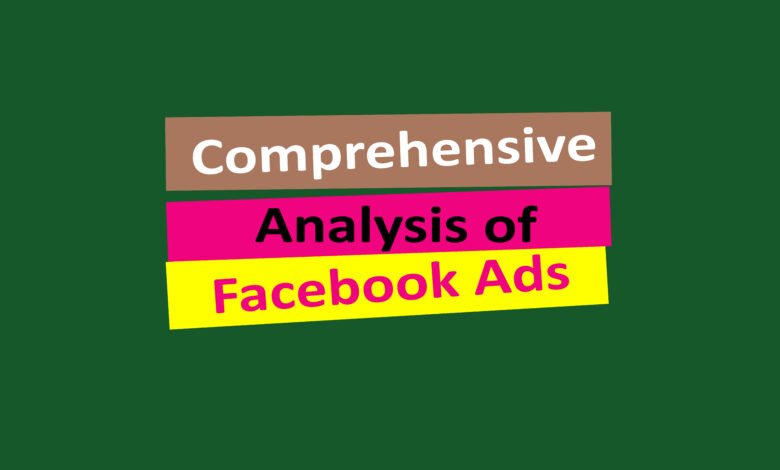
Introduction:
In the ever-evolving landscape of digital marketing, businesses continually seek effective ways to reach their target audiences. Facebook Ads have emerged as a prominent player in this arena, providing a versatile platform for advertisers. The question of whether Facebook Ads are worth the investment is a nuanced one, dependent on numerous factors. This exploration delves into the key considerations that can help businesses determine the value of integrating Facebook Ads into their marketing strategies.
- Audience Targeting and Reach:
One of the fundamental strengths of Facebook Ads lies in its robust audience targeting capabilities. With an extensive user base spanning diverse demographics and interests, businesses can precisely tailor their advertisements to reach specific groups. The platform’s granular targeting parameters enable advertisers to connect with audiences based on factors such as age, location, interests, and behaviors. If your target audience is actively engaged on Facebook or Instagram, the potential for reaching and resonating with them is substantial.
- Budget Flexibility and Cost-Effectiveness:
Facebook Ads offer flexibility in budgeting, making them accessible to businesses of all sizes. Advertisers can set daily or lifetime budgets, allowing for a controlled and scalable approach to advertising expenditures. Compared to traditional advertising channels, Facebook Ads often prove to be cost-effective, especially for small and medium-sized enterprises seeking to maximize their marketing ROI. The ability to start with a modest budget and adjust spending based on performance makes it an attractive option for businesses with varying financial capacities.
- Diverse Ad Formats and Objectives:
Facebook provides a range of ad formats to cater to different marketing objectives. Whether the goal is to boost brand awareness, drive website traffic, generate leads, or encourage conversions, the platform offers customizable solutions. From engaging image and video ads to dynamic carousel ads, businesses can choose the format that aligns with their content and resonates best with their audience. This adaptability contributes to the versatility of Facebook Ads, making them suitable for a wide array of marketing goals.
- Comprehensive Analytics and Insights:
The availability of detailed analytics and insights is a compelling feature of Facebook Ads. Advertisers can access a wealth of data regarding the performance of their campaigns, including metrics like reach, engagement, click-through rates, and conversion rates. These insights empower businesses to make informed, data-driven decisions, allowing for continuous optimization and refinement of their advertising strategy. The ability to track and measure the impact of ad campaigns provides a level of transparency that is crucial for gauging the effectiveness of Facebook Ads.
- Testing and Optimization Opportunities:
Facebook Ads facilitate A/B testing, enabling advertisers to experiment with different ad creatives, copy, and audience targeting. This iterative approach allows businesses to identify what resonates most effectively with their audience, leading to continuous improvement in campaign performance. The platform’s testing and optimization features empower advertisers to refine their strategies based on real-time data, ensuring that marketing efforts align with evolving consumer preferences.
- Consideration of Industry and Competition:
The effectiveness of Facebook Ads can be influenced by the nature of the industry and the competitive landscape. Certain industries may find Facebook Ads particularly conducive to their marketing objectives, while others may face challenges due to saturation or audience preferences. Conducting a thorough analysis of industry dynamics and competitor strategies is crucial. Businesses should assess whether their competitors are leveraging Facebook Ads and identify opportunities to differentiate their offerings within the platform.
- Ad Quality and Relevance:
Facebook’s algorithm rewards ads that are relevant and engaging to users. High-quality content that aligns with the interests and preferences of the target audience is more likely to receive favorable placement and interaction. Advertisers must invest in creating compelling visuals, compelling copy, and calls-to-action that resonate with their audience. Ensuring that ads provide value to users enhances the likelihood of achieving marketing goals and contributes to the overall effectiveness of Facebook Ads.
Conclusion:
In the dynamic realm of digital advertising, determining the worth of Facebook Ads requires a holistic assessment of various factors. The platform’s capabilities in audience targeting, budget flexibility, and diverse ad formats make it an attractive option for businesses seeking to amplify their online presence. The detailed analytics, testing opportunities, and adaptability further contribute to the potential effectiveness of Facebook Ads.
However, the value derived from Facebook Ads is contingent on the specific goals, target audience, and industry dynamics of each business. Advertisers must approach Facebook Ads with a strategic mindset, continuously monitoring and optimizing campaigns to align with evolving consumer behaviors.
In essence, while Facebook Ads can be a valuable tool for many businesses, success lies in the thoughtful integration of these ads into a comprehensive marketing strategy. Advertisers who leverage the platform’s strengths, adapt to changing trends, and prioritize audience engagement are likely to find Facebook Ads a worthwhile investment in their overall marketing endeavors.




